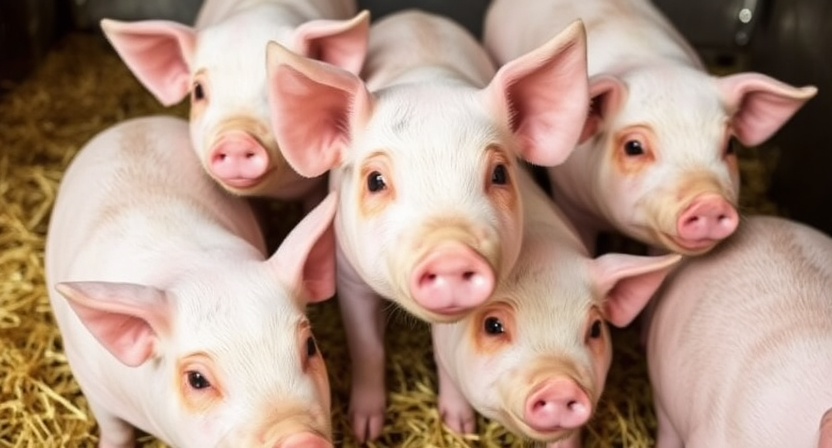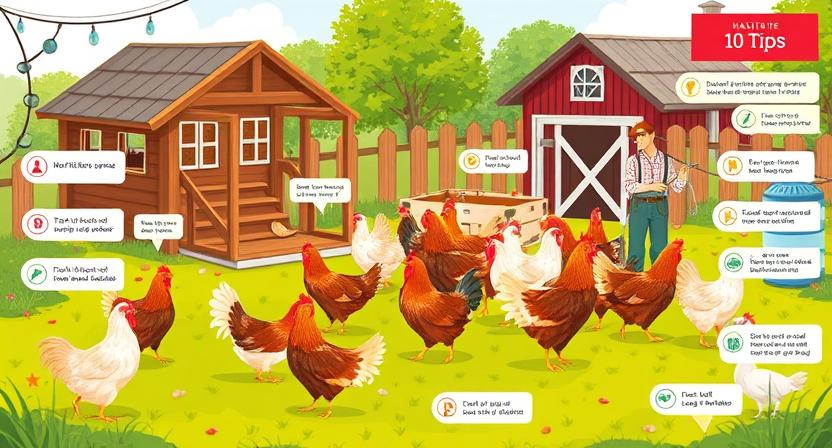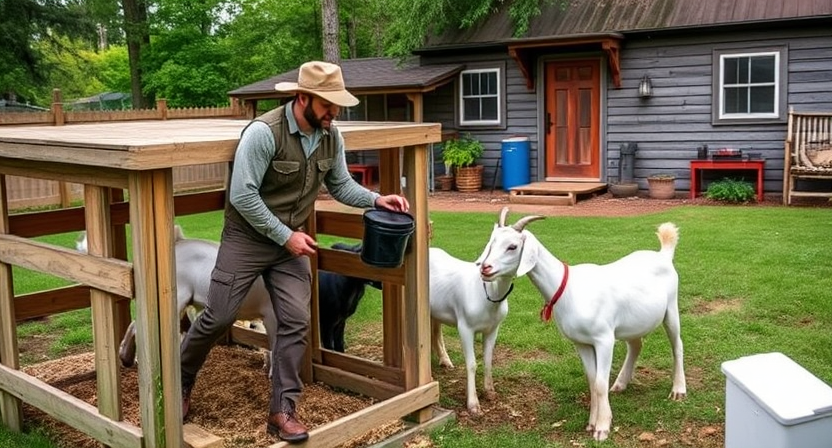Raising Pigs: What You Need to Know Before You Start

Things to Consider Before Starting Your Pig Farm

When considering starting a pig farm, it is important to evaluate your level of commitment and dedication needed to care for these animals. Pigs require daily attention, proper nutrition, and a suitable living environment. Additionally, understanding the financial investment involved in setting up a pig farm is crucial. Expenses may include feeding costs, veterinary care, housing, and equipment. It is essential to have a solid financial plan in place to ensure the sustainability of your pig farming venture.
Another crucial aspect to consider before starting a pig farm is the knowledge and research required in pig farming practices. Familiarizing yourself with different pig breeds, their characteristics, and specific requirements can help you make informed decisions for your farm. Researching best practices in pig healthcare, nutrition, handling techniques, and breeding considerations can contribute to the success of your pig farming operation. Being well-informed and prepared will set a strong foundation for your journey into pig farming.
• Daily attention, proper nutrition, and suitable living environment required for pigs
• Financial investment includes feeding costs, veterinary care, housing, and equipment
• Solid financial plan crucial for sustainability of pig farming venture
• Knowledge and research in pig farming practices essential before starting a farm
• Familiarize yourself with different pig breeds, characteristics, and specific requirements
• Research best practices in pig healthcare, nutrition, handling techniques, and breeding considerations
The Importance of Researching Pig Breeds

Researching pig breeds is a crucial initial step in starting a pig farm. Different pig breeds have varying characteristics such as size, temperament, growth rate, and meat quality. By understanding the traits and requirements of different breeds, farmers can choose the most suitable breed that aligns with their farming goals and resources. For example, some pig breeds are better suited for commercial meat production, while others may be more suitable for small-scale farming or specific niche markets. Conducting thorough research on pig breeds can help farmers make informed decisions for their farm’s success.
Moreover, researching pig breeds allows farmers to optimize their breeding programs and improve the overall productivity of their farm. Selecting the right breed that thrives in the local climate and environmental conditions can lead to better health and welfare outcomes for the animals. Additionally, certain pig breeds are known for their disease resistance or reproductive efficiency, which can positively impact the farm’s profitability and sustainability in the long run. By investing time and effort in researching different pig breeds, farmers can set a strong foundation for a successful and thriving pig farming venture.
• Researching pig breeds helps farmers choose the most suitable breed for their farming goals and resources
• Different pig breeds have varying characteristics such as size, temperament, growth rate, and meat quality
• Some pig breeds are better suited for commercial meat production while others may be more suitable for small-scale farming or niche markets
• Thorough research on pig breeds can help farmers make informed decisions for their farm’s success
• Researching pig breeds allows farmers to optimize breeding programs and improve overall productivity of the farm
• Selecting the right breed that thrives in local climate and environmental conditions can lead to better health and welfare outcomes for the animals
• Certain pig breeds are known for disease resistance or reproductive efficiency which can positively impact profitability and sustainability of the farm
• Investing time and effort in researching different pig breeds sets a strong foundation for a successful pig farming venture
Understanding the Financial Investment Involved

Pig farming requires a significant financial investment to establish and maintain a successful operation. Costs associated with setting up a pig farm include purchasing land, constructing suitable housing, acquiring pigs, and buying equipment and supplies. Additionally, ongoing expenses such as feeding, healthcare, and veterinary services need to be factored into the budget. It is essential to create a detailed financial plan to ensure that all expenses are accounted for and that the farm remains economically sustainable.
Apart from the initial setup costs, pig farming also involves continuous financial commitments for routine care and maintenance. feed expenses, veterinary services, medication, labor costs, and utilities can all add up, necessitating careful budgeting to avoid financial strain. It is important for aspiring pig farmers to conduct thorough research and seek advice from experienced individuals to gain a realistic understanding of the financial investment required for successful pig farming operations.
• Setting up a pig farm requires purchasing land, constructing housing, acquiring pigs, and buying equipment
• Ongoing expenses include feeding, healthcare, and veterinary services
• Detailed financial planning is essential for economic sustainability
• Routine care and maintenance involve feed expenses, veterinary services, medication, labor costs, and utilities
• Aspiring pig farmers should conduct thorough research and seek advice from experienced individuals
Creating a Suitable Living Environment for Pigs

Providing a suitable living environment for pigs is essential for their overall welfare and productivity. When setting up the housing for your pigs, consider factors such as space, ventilation, insulation, and flooring. Pigs are sensitive to extreme temperatures, so ensuring proper insulation and ventilation will help maintain a comfortable environment for them throughout the year.
Additionally, pigs are naturally curious and intelligent animals that require mental stimulation. Enriching their living environment with toys, rooting materials, and spaces for exploration can prevent boredom and promote their well-being. Proper drainage and waste management systems are also crucial to maintain a clean and hygienic living space for the pigs, reducing the risk of diseases and improving their overall health.
• Providing adequate space for pigs to move around comfortably
• Ensuring proper ventilation and insulation in the housing area
• Enriching their environment with toys, rooting materials, and spaces for exploration
• Implementing proper drainage and waste management systems
• Maintaining a clean and hygienic living space to reduce the risk of diseases
Providing Proper Nutrition and Diet for Pigs

Pigs require a well-balanced diet to maintain optimal health and growth. Their nutritional needs vary depending on their age, weight, and breed. A diet high in fiber, protein, vitamins, and minerals is essential for their well-being. It is crucial to provide pigs with a mix of commercially available pig feed, supplemented with fresh fruits and vegetables to ensure they receive all the necessary nutrients.
In addition to their regular feed, pigs also need access to clean water at all times. Water plays a vital role in their digestion and overall health. It is recommended to monitor their water intake and ensure they have a sufficient supply. Proper nutrition and hydration are key factors in raising healthy and happy pigs, so it is important to consult with a veterinarian or animal nutritionist to tailor a diet that meets the specific needs of your pigs.
• Pigs require a well-balanced diet for optimal health and growth
• Their nutritional needs vary based on age, weight, and breed
• A diet high in fiber, protein, vitamins, and minerals is essential
• Provide pigs with commercially available pig feed supplemented with fresh fruits and vegetables
• Access to clean water at all times is crucial for digestion and overall health
• Monitor water intake to ensure pigs have an adequate supply
• Consult with a veterinarian or animal nutritionist to tailor a diet specific to your pigs’ needs
Healthcare and Veterinary Needs for Pigs

Maintaining the health and well-being of your pigs is crucial for a successful pig farming venture. Regular check-ups and vaccinations are essential to prevent the spread of disease and ensure the overall health of your herd. A qualified veterinarian experienced in working with pigs should be consulted for routine health checks and to address any health concerns that may arise.
In addition to preventive healthcare measures, it is vital to promptly address any illnesses or injuries that your pigs may experience. Early detection and treatment can prevent further complications and promote a speedy recovery. As a responsible pig farmer, staying vigilant about the health of your pigs and seeking veterinary care when needed will help ensure a thriving and sustainable pig farming operation.
• Regular check-ups and vaccinations are essential for preventing disease
• Consult with a qualified veterinarian experienced in working with pigs
• Promptly address any illnesses or injuries to prevent further complications
• Early detection and treatment can promote a speedy recovery
• Stay vigilant about the health of your pigs for a thriving operation
Training and Handling Techniques for Pigs

Training pigs requires patience, consistency, and positive reinforcement techniques. Pigs are intelligent animals that can be trained to respond to commands and cues through repetition and rewards. Using treats or rewards that appeal to the pigs can help reinforce desired behaviors during training sessions.
When handling pigs, it’s essential to approach them calmly and confidently. Sudden movements or loud noises can startle pigs and lead to stress or aggression. Establishing a routine for handling pigs can help them feel more at ease and comfortable with human interaction. Gentle but firm handling techniques should be used to ensure the safety of both the pigs and the handlers.
• When training pigs, use circle bullet style
• Pigs are intelligent animals that respond well to repetition and rewards
• Treats or rewards can help reinforce desired behaviors during training sessions
• Approach pigs calmly and confidently when handling them
• Sudden movements or loud noises can startle pigs and lead to stress or aggression
• Establish a routine for handling pigs to make them feel more at ease with human interaction
• Use gentle but firm handling techniques when working with pigs
• Ensure the safety of both the pigs and handlers by using appropriate handling methods
Socialization and Interaction for Pig Wellbeing

Socialization and interaction play a crucial role in ensuring the overall wellbeing of pigs on a farm. Pigs are highly social animals that thrive on companionship and communication with their herd. To promote a positive environment for your pigs, it’s essential to provide opportunities for them to interact with each other through shared spaces and group activities.
Allowing pigs to engage in natural behaviors such as rooting, playing, and exploring together not only enhances their mental stimulation but also helps in reducing stress and anxiety. Regular socialization among pigs can establish stable social hierarchies within the herd, minimizing conflicts and promoting a harmonious atmosphere. By fostering a supportive social structure for your pigs, you contribute to their emotional well-being and create a healthier and happier living environment for them.
• Providing ample space for pigs to interact and engage in group activities
• Encouraging natural behaviors like rooting, playing, and exploring together
• Establishing stable social hierarchies within the herd through regular socialization
• Minimizing conflicts and promoting a harmonious atmosphere among pigs
• Fostering a supportive social structure for emotional well-being of pigs
Breeding and Reproduction Considerations

One key aspect of successful pig farming is understanding the breeding and reproduction considerations. When planning for breeding, it is essential to carefully select healthy, high-quality breeding stock to ensure the production of strong and robust piglets. Knowing the ideal age and weight for breeding sows, as well as the proper mating process, plays a crucial role in the overall success of the breeding program.
Furthermore, keeping detailed records of breeding dates, gestation periods, and farrowing dates is essential for effective herd management. Monitoring the overall health and reproductive performance of both sows and boars is also vital in ensuring a successful breeding program. By implementing proper breeding and reproduction practices, pig farmers can optimize production and contribute to the long-term sustainability of their farm.
• Select healthy, high-quality breeding stock
• Know ideal age and weight for breeding sows
• Understand proper mating process
• Keep detailed records of breeding dates, gestation periods, and farrowing dates
• Monitor overall health and reproductive performance of sows and boars
By following these breeding and reproduction considerations, pig farmers can increase the chances of producing strong and healthy piglets while maintaining a successful breeding program. Proper planning and management in this area are key to the long-term success of any pig farming operation.
Dealing with Waste Management on a Pig Farm

Proper waste management is a crucial aspect of running a pig farm efficiently and sustainably. The volume of waste produced by pigs can be significant, so it is essential to have a strategic plan in place to handle it effectively. Manure from pigs is a valuable resource that can be recycled and used as organic fertilizer for crops, contributing to a circular economy on the farm.
Additionally, ensuring that waste disposal systems meet environmental regulations is paramount. Contaminated water runoff or improper waste disposal can have detrimental effects on the surrounding environment, affecting not only the farm but also the local community. Implementing best practices, such as composting manure, utilizing anaerobic digesters, or working with waste management professionals, can help mitigate these risks and promote a more sustainable approach to waste management on a pig farm.
• Implement a composting system for pig manure to create organic fertilizer
• Explore the use of anaerobic digesters to convert waste into biogas for energy production
• Work with waste management professionals to develop a comprehensive waste management plan
• Regularly monitor and maintain waste disposal systems to ensure compliance with environmental regulations
Legal Requirements and Regulations for Pig Farming

Before starting a pig farm, it is crucial to familiarize oneself with the legal requirements and regulations governing pig farming in your region. These regulations are put in place to ensure the health and welfare of the animals, as well as to protect the environment and public health. It is important to adhere to these guidelines to avoid any potential legal issues and ensure that your pig farming operation is in compliance with the law.
Legal requirements may include obtaining necessary permits and licenses to operate a pig farm, following zoning regulations for agricultural activities, and adhering to animal welfare laws. Additionally, there may be regulations regarding waste management, water usage, and biosecurity measures to prevent the spread of diseases among the pig population. By understanding and following these legal requirements and regulations, you can run a successful and sustainable pig farming operation while also contributing to the overall well-being of the industry.
• Before starting a pig farm, familiarize yourself with legal requirements and regulations
• Regulations ensure animal health, welfare, environmental protection, and public health
• Adhere to guidelines to avoid legal issues and comply with the law
• Legal requirements may include obtaining permits, following zoning regulations, and adhering to animal welfare laws
• Regulations may also cover waste management, water usage, and biosecurity measures for disease prevention
• Understanding and following these regulations can lead to a successful and sustainable pig farming operation
Ensuring Proper Shelter and Protection for Pigs

When it comes to ensuring proper shelter and protection for pigs on your farm, the housing conditions play a crucial role in their wellbeing. Pigs require shelter that provides them with protection from extreme weather conditions such as heat, cold, wind, and rain. The housing should also offer enough space for the pigs to move around comfortably and have separate areas for feeding, resting, and waste elimination.
In addition to providing adequate shelter, it is essential to implement proper fencing and security measures to protect the pigs from predators and intruders. Secure fencing around the housing area is necessary to prevent the pigs from wandering off and to keep unwanted visitors out. Regular checks and maintenance of the fencing are crucial to ensure the safety and security of the pigs at all times.
• Proper shelter is crucial for the wellbeing of pigs on a farm
• Shelter should protect pigs from extreme weather conditions
• Housing should provide enough space for pigs to move comfortably
• Separate areas for feeding, resting, and waste elimination are essential
• Implementing proper fencing and security measures is necessary
• Secure fencing around the housing area helps prevent pigs from wandering off
• Regular checks and maintenance of fencing ensure safety and security of the pigs
Implementing Biosecurity Measures on Your Farm

Biosecurity measures are essential to maintain the health and well-being of your pig farm. It involves implementing a set of practices and protocols to prevent the introduction and spread of diseases among your livestock. This includes controlling access to your farm, proper sanitation procedures, and monitoring the health status of your pigs regularly.
By establishing strict biosecurity measures, you can reduce the risk of disease outbreaks and protect the overall productivity of your pig farm. This proactive approach can save you time, money, and resources in the long run by preventing the need for costly treatments and potential loss of livestock. Remember, biosecurity is not just a one-time effort, but an ongoing commitment to safeguarding the health of your pigs and the sustainability of your farming operation.
• Limit access to your farm by implementing secure entry points and visitor protocols
• Practice proper sanitation by regularly cleaning and disinfecting equipment, vehicles, and facilities
• Monitor the health status of your pigs through regular veterinary check-ups and disease testing
• Implement quarantine measures for new animals or returning pigs to prevent the spread of diseases
• Educate yourself and your staff on biosecurity best practices and stay updated on new developments in disease prevention techniques.
Handling Pig Behavior and Temperament

Understanding pig behavior and temperament is crucial for successful pig farming. Pigs are intelligent animals with social structures within their groups. They can exhibit various behaviors such as rooting, nesting, exploring, playing, and even aggression. It’s essential to observe and learn to interpret their body language and vocalizations to understand their needs and feelings.
When handling pigs, it’s important to remain calm and assertive to establish yourself as the leader. Pigs respond well to consistency, routine, and positive reinforcement. By providing proper training and handling techniques, you can build a trusting relationship with your pigs and create a stress-free environment for them. It’s also important to be patient and understanding, as each pig may have its own unique personality and behaviors.
• Pigs are intelligent animals with social structures within their groups
• They exhibit behaviors such as rooting, nesting, exploring, playing, and aggression
• Observing and interpreting body language and vocalizations is essential for understanding their needs
• Remaining calm and assertive when handling pigs helps establish leadership
• Consistency, routine, and positive reinforcement are key to successful pig training
• Building a trusting relationship with pigs creates a stress-free environment
• Each pig may have its own unique personality and behaviors
Marketing and Selling Your Pig Products

When it comes to marketing and selling your pig products, it’s essential to have a clear strategy in place. Start by identifying your target market and understanding their preferences and needs. This will help you tailor your marketing efforts to reach the right audience effectively. Utilize various channels such as social media, local markets, and online platforms to showcase your products and attract potential customers.
In addition to marketing, the selling process is equally important. Ensure that your pig products are of high quality and are presented attractively to customers. Provide detailed information about your products, including their origin, nutritional value, and any special features. Building trust with your customers is crucial, so always be transparent and honest in your interactions. Offer excellent customer service to create a positive buying experience and encourage repeat business.
• Identify your target market and understand their preferences
• Tailor your marketing efforts to reach the right audience effectively
• Utilize various channels such as social media, local markets, and online platforms
• Ensure that your pig products are of high quality
• Present your products attractively to customers
• Provide detailed information about your products including origin, nutritional value, and special features
• Be transparent and honest in your interactions with customers
• Offer excellent customer service to create a positive buying experience
Potential Challenges and Risks in Pig Farming

Rearing pigs can be a rewarding venture, but it comes with its fair share of challenges and risks. One common challenge faced by pig farmers is disease outbreaks. Pigs are susceptible to various illnesses, and managing their health can be a complex task. Additionally, biosecurity measures must be strictly adhered to in order to prevent the spread of diseases among the herd.
Another risk in pig farming is the fluctuating market prices for pig products. Economic factors, consumer demand, and competition within the industry can all impact the profitability of a pig farm. Farmers must carefully monitor market trends and be prepared to adapt their business strategies accordingly to remain viable in the market.
• Disease outbreaks are a common challenge in pig farming
• Managing pig health can be complex and requires strict biosecurity measures
• Fluctuating market prices for pig products pose a risk to profitability
• Economic factors, consumer demand, and industry competition can impact farm viability
• Farmers must monitor market trends and adapt business strategies accordingly
Networking and Building Relationships in the Industry

Building relationships and establishing a network within the pig farming industry is crucial for success and growth. By connecting with other farmers, suppliers, and industry professionals, you can gain valuable insights, tips, and support to navigate the challenges of pig farming. Networking also opens up opportunities for collaboration, joint ventures, and access to new markets for your pig products.
Attending industry conferences, workshops, and trade shows can be beneficial for expanding your network and staying updated on the latest trends and technologies in pig farming. Engaging in online forums, social media groups, and local farming communities also allows you to exchange ideas, seek advice, and build relationships with like-minded individuals passionate about pig farming. Remember, fostering strong connections within the industry can lead to long-term partnerships, business growth, and a supportive community to rely on during the ups and downs of pig farming.
• Networking and building relationships in the pig farming industry is crucial for success and growth
• Connecting with other farmers, suppliers, and industry professionals can provide valuable insights, tips, and support
• Opportunities for collaboration, joint ventures, and access to new markets can arise through networking
• Attending industry conferences, workshops, and trade shows helps expand your network and stay updated on trends
• Engaging in online forums, social media groups, and local farming communities allows for idea exchange and relationship building
• Fostering strong connections within the industry can lead to long-term partnerships, business growth, and a supportive community
Continuous Education and Learning in Pig Farming

Continuous education and learning in pig farming is crucial for staying updated on the latest advancements, best practices, and industry trends. As a pig farmer, it is essential to actively seek out educational opportunities such as workshops, webinars, conferences, and courses to enhance your knowledge and skills. By continuously learning and adapting to new information, you can improve the overall efficiency and profitability of your pig farm.
Moreover, networking with other pig farmers, industry experts, and agricultural professionals can provide valuable insights and perspectives that can enrich your understanding of pig farming. Building relationships within the farming community allows for knowledge sharing, idea exchange, and collaborative problem-solving, which can contribute to your ongoing education and growth as a pig farmer. Embracing a mindset of lifelong learning and remaining open to new ideas and practices is key to thriving in the dynamic and evolving field of pig farming.
• Attending workshops, webinars, conferences, and courses
• Networking with other pig farmers, industry experts, and agricultural professionals
• Sharing knowledge and exchanging ideas within the farming community
• Embracing a mindset of lifelong learning
Continuous education in pig farming not only benefits individual farmers but also contributes to the overall advancement of the industry. By staying informed about new technologies, techniques, and research findings, pig farmers can implement innovative practices that improve animal welfare, environmental sustainability, and farm productivity. Additionally, ongoing education helps pig farmers stay compliant with regulations and standards governing the industry while also meeting consumer demands for ethically produced pork products.
Investing time and resources into continuous education demonstrates a commitment to professional development and excellence in pig farming. It positions farmers as leaders in their field who are dedicated to continuous improvement and innovation. Ultimately, embracing a culture of lifelong learning in pig farming is essential for success in an ever-changing agricultural landscape where adaptability and knowledge are key drivers of competitiveness.
The Rewarding Aspects of Raising Pigs

Raising pigs can offer a sense of fulfillment and satisfaction unlike any other agricultural endeavor. The bond that forms between a farmer and their pigs is often strong and enduring. Being able to witness the growth and development of these intelligent animals, from curious piglets to mature adults, is truly a rewarding experience.
Moreover, the self-sufficiency and resourcefulness required in pig farming can be empowering. As a pig farmer, one learns to adapt to various challenges, make informed decisions, and take responsibility for the well-being of the animals. The feeling of accomplishment that comes with successfully raising healthy pigs and contributing to the local food supply chain is invaluable.
• Raising pigs can create a strong bond between the farmer and the animals
• Witnessing the growth and development of intelligent pigs is rewarding
• Self-sufficiency and resourcefulness in pig farming can be empowering
• Adapting to challenges, making informed decisions, and taking responsibility for animal well-being are key aspects
• Accomplishment from successfully raising healthy pigs and contributing to local food supply chain is invaluable
Future Planning and Sustainability in Pig Farming

One key aspect of pig farming that should not be overlooked is the importance of future planning and sustainability. As a pig farmer, it is crucial to have a long-term vision for your operations to ensure continued success and profitability. This involves considering factors such as market trends, environmental impacts, and technological advancements that can affect the sustainability of your farm.
In order to thrive in the ever-evolving pig farming industry, it is essential to continuously adapt and improve your practices. By staying informed about the latest developments in animal husbandry, genetics, and biosecurity measures, you can position your farm for long-term sustainability. Additionally, exploring new marketing strategies and diversifying your product offerings can help you stay competitive and meet the changing demands of consumers and the market.
• Implementing sustainable farming practices such as waste management and resource conservation
• Investing in technology to improve efficiency and productivity on the farm
• Developing a comprehensive business plan that outlines goals and strategies for growth
• Collaborating with other pig farmers and industry experts to share knowledge and best practices
• Conducting regular evaluations of your operations to identify areas for improvement




